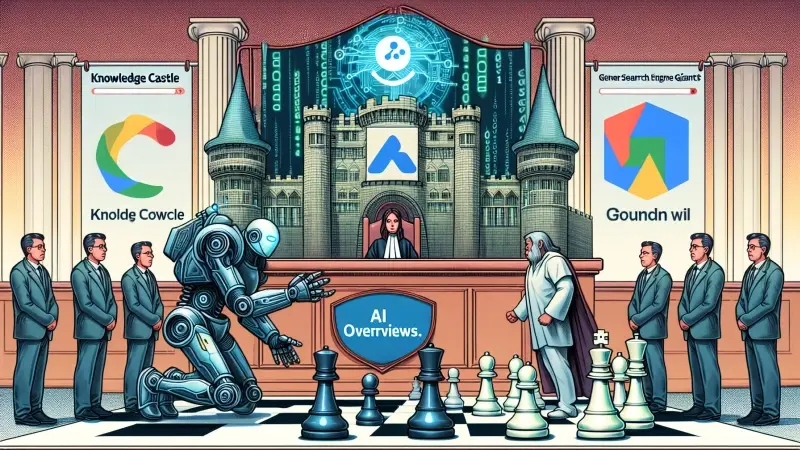Chegg Sues Google Over AI Overviews
Edtech firm alleges Google's AI practices harm business by showcasing summaries without driving traffic.

An education technology company is taking Alphabet and Google to court over AI overviews displayed with search results. The company, Chegg, headquartered in Santa Clara, Calif., announced Monday it's filing a lawsuit in the U.S. District Court in the District of Columbia. Chegg alleges, “Google unfairly exercises its monopoly power within search and other anti-competitive conduct to muscle out companies like Chegg.”
In a press release announcing its 2024 fourth-quarter earnings, Chegg reported total net revenue of US$143 million, a 24% year-over-year decline. CEO Nathan Schultz stated in the release that, in addition to the lawsuit, the company was “exploring a range of alternatives to maximize shareholder value, including being acquired, undertaking a go-private transaction, or remaining as a public standalone company.”
Impact of Google's AI Overviews
Schultz claimed, “These two actions are connected, as we would not need to review strategic alternatives if Google hadn’t launched AI Overviews, or AIO, retaining traffic that historically had come to Chegg, materially impacting our acquisitions, revenue, and employees.”
“Chegg has a superior product for education, as evident by our brand awareness, engagement, and retention,” he continued. “Unfortunately, traffic is being blocked from ever coming to Chegg because of Google’s AIO and their use of Chegg’s content to keep visitors on their own platform.”
Chegg's court filing asserts that Google forces companies to supply proprietary content for inclusion in Google’s search function, unfairly exercises its monopoly power within search, and reaps benefits from Chegg’s content without compensation.
Response from Google
In a statement to TechNewsWorld by Google spokesperson José Castañeda, the company countered: “With AI Overviews, people find Search more helpful and use it more, creating new opportunities for content to be discovered. Every day, Google sends billions of clicks to sites across the web, and AI Overviews send traffic to a greater diversity of sites. We will defend against these meritless claims.”
AI Overviews Threaten Content Creators
Ben James, founder of 404, Bittensor Subnet 17, outlined that Google’s AI-generated overviews act as shortcuts, providing users with summaries without needing to visit the original source of information. “This affects the traffic to the publisher’s websites, impacting their ad revenue and subscription models,” he told TechNewsWorld.
“If users are no longer required to visit the site of the source info or read full articles, publishers may eventually lose incentives to produce in-depth, high-quality pieces,” he said.
Mark N. Vena, president at SmartTech Research, added that overviews can reduce incentives for detailed reporting. “As a result, publishers could see a decline in website traffic and ad revenue, weakening their financial viability. This shift ultimately undermines the competitive landscape for original content,” he told TechNewsWorld.
Doom Loop for News Industry
JD Harriman, a partner with Foundation Law Group, highlighted the risks, saying, “It could create a doom loop. When a company has less traffic and therefore less revenue, overhead must be cut, which could mean reducing content, staff, etcetera, making the site less interesting.”
Vena added, stating, “Without sufficient financial support, news organizations may cut back on investigative journalism, leading to a homogenized media landscape dominated by clickbait content.”
Legal Challenges and Fair Use
Challenges to Chegg's success include legal precedents regarding AI and fair use. Rob Enderle, president at Enderle Group, pointed out that summarizing generally falls within “fair use” under the Copyright Act of 1986. “What Google did could be argued as part of the research exclusion,” he noted.
Greg Sterling, co-founder of Near Media, remarked, “It’s a long shot, as its condition is more a byproduct of ChatGPT’s existence. However, the claims probably won’t be dismissed immediately.”
The outcome could depend on nuanced interpretations of copyright law, fair use, and the economic impact on publishers.



